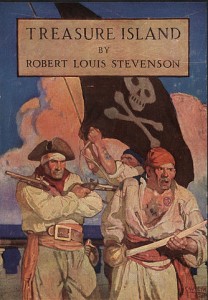
Courtney Act (hinnk / CC-BY-SA-3.0)
This season of RuPaul’s Drag Race featured Courtney Act (aka Shane Jenek), a renowned drag performer from Brisbane, Australia. In an early episode, Act/Jenek laments that Americans don’t get the pun in his stage name, which sounds similar to “caught in the act” to Australians (i.e. koːt n̩ i ækt). “Except,” Jenek says (and I’m paraphrasing), “maybe Boston or somewhere.”
I think Jenek’s right, it would take a second or two for most Americans to detect the pun, but not quite for the reason it might seem. Americans generally pronounce the /r/ in “Courtney” where Australians don’t. But the /r/ here occurs before another alveolar consonant, so the difference is hardly as prominent as it would be for Milne’s classic Eeyore pun (made all the more amusing by the vowel lengthening in non-rhotic British “-ore”: eee-aaawww).
The bigger problem is that most Americans use a very different vowel in “caught” than the one they use in “court“, which is different still from the vowel Australians use. The latter tend toward a fairly close “caught” vowel, while the former, especially in the cot-caught merged states, notoriously pronounce the word not dissimilarly from Southeastern British “cart“.
In fact, I think a pun like “cart in the act” would be pretty easily understood by most Americans (and indeed, a Google search produces at least two instances of Americans using just that pun in headlines). The vowel in “-ar” words in my accent is more or less identical to the vowel I use in “-aw” words.1 The bigger issue is that the vowel in “Courtney” and “Caught” are quite different for most of us in the States.
As to Jenek’s comment, I rather disagree that Boston would be the city most likely to grasp the pun. Contemporary non-rhotic Bostonians often make a distinction between the vowels “caught” and “court“, with the former word pronounced with a rather open vowel similar to that of most other American accents. Marked New York City English would probably be a better example, as its speakers tend to use similar vowels for both syllables.
It doesn’t help, of course, that “Courtney Act” is a complex pun that requires an intuitive understanding of English phonetics. To get the joke, you need to know that “in” can be pronounced as a syllabic /n/ and that English speakers sometimes drop “th” after that same /n/. While a pun like “cart in the act” is easy to spot because it resembles the structure of the phrase upon which the pun rests, “Courtney Act” is harder to parse.
1. For phonetics lovers, I generally make only a slight distinction between pairs like “caught” and “cot,” pronouncing the former with something close to Cardinal 5 (ɑ) and the latter with a vowel in between Cardinals 5 and the centralized variant of Cardinal 4.






